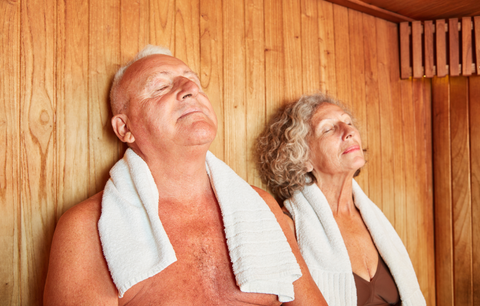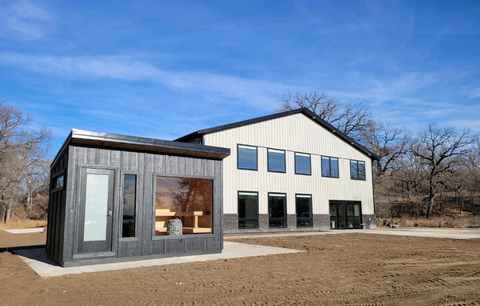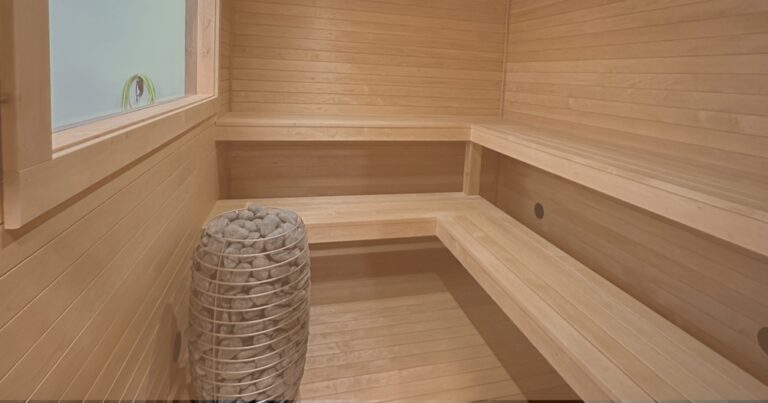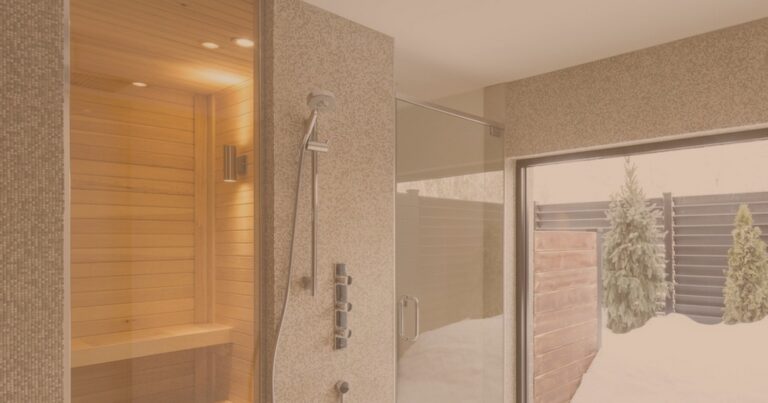What’s the point in increasing your lifespan if you do not increase your health span? When you live longer, you want to be in good health, and enjoy a high quality of life throughout your years on Earth.
Interestingly, the science is staggering for the benefits of sauna treatments as a secret to increasing health and well-being for a long and enjoyable life. From actors like Chris Hemsworth to music icons like Lady Gaga, there’s a long list of celebrities who have praised saunas for offering one health benefit or the other.
However, the celebrity endorsements will often times omit the mounting studies about the benefits of regular sauna use. It’s the medical researchers and doctors whose data and opinions matter most about how a sauna benefits your health beyond relaxation.
What are the health benefits of saunas according to medical researchers and doctors? This article will answer this question.
At the end of this article, you’ll understand the health benefits of saunas and be one step closer to increasing your health span for a longer and more enjoyable life.
What are the health benefits of sauna sessions?
Traditionally, saunas are used to produce a feeling of relaxation. But they do much more! As the heat soothes your body, it offers many health and wellness benefits.
These potential health benefits of sauna bathing include:
Improves heart health

Saunas soak your body in heat, significantly increasing your core body temperature. The heat bathing increases your heart rate, similar to the effects of moderate exercise. A sauna session can increase your heart rate from baseline up to 150 beats/ min.
The increased heart rate has a lot of benefits for cardiovascular health.
Different studies have shown that sauna therapy improves heart health. One study showed that people who used traditional Finnish saunas five times a week for 2 to 4 weeks experienced improved heart function.
Reduces blood pressure
When your body temperature increases during sauna therapy, the blood vessels close to your skin dilate (a phenomenon called vasodilation). As the blood vessels widen, blood pressure reduces.
Regular sauna use is associated with improving blood circulation, a benefit that comes from the dilation of blood vessels as body temperature increases.
Improves cardiovascular respiratory fitness
Cardiovascular respiratory fitness (CRF) is how well your body delivers oxygen to your muscles and organs during physical activity. People with low CRF tend to have higher blood pressure, increasing their risk of sudden cardiac death.
Regular exercise is one way to increase your CRF. Adding sauna sessions does double magic for your CRF levels. A good exercise followed by 15 minutes of sauna heat bathing will improve your CRF more than exercising alone.

Reduce total serum cholesterol
High blood cholesterol can cause fatty deposits in your blood vessels, and this can restrict blood flow or form a clot that causes a heart attack or stroke. Lowering your total cholesterol level by 10% can reduce the risk of cardiovascular disease by 30%.
Interestingly, sweating is one way to reduce your total cholesterol level, and a sauna heat bath is one of the best ways to get a good sweat to reduce total serum cholesterol.
There are actually two types of cholesterol – high-density lipoprotein (HDP) and low-density lipoprotein (LDL). HDP is good cholesterol, while LDP is bad cholesterol. So, for good health, you need HDP to be high and LDL and total blood cholesterol to be low. Thankfully, that is exactly what a sauna bath delivers.
A good workout can also help you sweat to reduce cholesterol levels. However, combining exercise with frequent sauna bathing reduces total cholesterol levels better than only exercising.
Aids post-exercise recovery

Do you hate working out because you feel sore afterward? Know that aches and pains in muscles and joints after a workout are natural. Microscopic damage occurs to muscle fibers during a workout, triggering an inflammatory response as the body works to repair the affected muscle tissue.
The good news is that regular sauna bathing reduces the pain and soreness you feel following a workout.
Saunas do this in several ways. First, the heat that soothes your body relaxes your muscles, helping to alleviate muscle soreness. Secondly, it facilitates the release of endorphins, which make you less perceptive to the pain.
So, don’t skip exercising because of post-workout muscle soreness. Instead, add sauna bathing to your wellness regime. After a workout session, spend about 15 minutes in a traditional or infrared sauna to promote muscle relaxation. You’ll feel less tightness and soreness in those triceps.
Flush out toxins
Using a sauna to get a deep sweat leads to the removal of substances from the body, including salt, urea, and heavy metals like copper, nickel, zinc, arsenic, cadmium, and mercury.
Know that we pick up potentially toxic heavy metals daily just by interacting with our environment. These heavy metals can enter our bodies through the skin or via inhalation.
Thankfully, these toxic metals can leave the body through sweat. While sweat is mostly water, it also includes salt, urea, and heavy metals.
The high temperature of saunas is excellent for inducing deep sweating that helps remove potentially toxic heavy metals from the body.
Improves brain health

A sauna bath is not only good for your muscles. It’s also good for your brain.
As mentioned earlier, the heat bath during sauna sessions causes vasodilation to improve blood circulation. This increases the amount of oxygen and nutrients delivered to the brain for better brain function.
The high temperature of a sauna can also stimulate the production of a group of proteins involved in cellular protection called heat shock proteins (HSPs). Interestingly, these HSPs could have neuroprotective effects for improved brain function.
So, regular sauna use can improve brain function, reducing your risk of dementia and Alzheimer’s disease.
The Alzheimer’s Association lists breaking a sweat as one to boost brain health. Interestingly, sauna sessions are best for breaking a sweat while relaxing.
Different studies have also linked sauna use to improved brain function and a lower risk of cognitive diseases such as dementia and Alzheimer’s. In one comprehensive study involving 2,315 adults, it was found that the risk of dementia and Alzheimer’s decreases with an increase in sauna bathing. People who had a sauna bath 2 – 3 times a week were 22% less likely to have dementia and 20% less likely to have Alzheimer’s than those who did not.
Relieves stress
A sauna session is a great stress-burster. The quiet space of a sauna is a sanctuary free of modern distractions like phones. There, you can just relax.
More importantly, the hot temperature of a sauna helps regulate the stress hormone – cortisol.
The body produces cortisol when you’re stressed. So, reducing it helps lower stress and anxiety. Interestingly, the heat soothing your body during sauna sessions can lower cortisol levels to help reduce stress.
Boost immune system

A sauna can boost your immune system and help your body fight off illnesses.
One of the first things your immune system does to fight cold or flu viruses is raise your core body temperature. It does this because viruses struggle to survive and are easily fought off when the body temperature is high. The fever then increases the production of white blood cells to fight the virus.
A sauna does something similar. The sauna bath raises your core body temperature. At the increased body temperature, more white blood cells are released into your bloodstream, making your body more equipped to fight off illnesses.
Precautions to take when using a sauna
Taking some precautions will ensure you get the most out of your sauna use. The precautions to take when using a sauna include:
Stay hydrated
Time in a sauna room will make you sweat really hard, leading to dehydration. This dehydration can cause a decrease in blood volume and severe complications such as seizures and even death.
So, it’s important to stay well-hydrated before, during, and after a sauna session. We cannot stress this enough! Ensure you drink a lot of water, especially after stepping out of a sauna room to replace lost fluid. The recommendation is to drink 2 to 4 glasses of water immediately after a session.
Limit sessions to 15 to 20 minutes
Exposure to high temperatures for long periods puts much strain on the body. So, you should not stay in a sauna for extended periods.
The recommended amount of time you should spend in a sauna is 15 to 20 minutes. However, when you’re new to sauna therapy, limit your sessions to 5 to 10 minutes.
Wait at least 10 minutes after exercising
A good exercise plus a sauna session equals better health and wellness benefits.
However, hitting a sauna too soon after exercising will bring more harm than good. For one, exercising elevates your body temperature, and entering a sauna session immediately after can lead to overheating, with effects such as dizziness and weakness.
You should wait at least 10 minutes after exercising before hitting the sauna. This allows your body to return to a normal temperature range.
Avoid alcohol
Do you drink alcohol occasionally? Sorry, you can’t take your favorite drink before or during a sauna session. You actually can but shouldn’t.
Alcohol is a diuretic, meaning it causes the body to remove fluid from the blood through the renal system. Remember that a sauna session induces deep sweating. So, a sauna session when you’re taking a diuretic like alcohol increases your risk of dehydration.
Cool down gradually after a session

After stepping out of a sauna session, it is best to allow your body to cool down gradually. Instead of toweling off, sit somewhere for about 10 minutes and let the air dry the sweat off your skin. Then, you can hop into a shower.
It’s important not to wear clothing immediately after stepping out of a sauna, as that can trap heat in, causing overheating.
Who should avoid sauna sessions?
Saunas do have many health benefits. Sadly, it is not for everyone. People who should avoid sauna sessions include:
People with low blood pressure
The heat therapy in a sauna room causes blood vessels to dilate, causing a drop in blood pressure. So, if you already have low blood pressure, a sauna session can cause your blood pressure to be excessively low.
Sick people
Staying hydrated is especially important when you’re sick, as it facilitates your immune system’s response. However, a sauna induces deep sweating to facilitate dehydration. The heat and relative humidity in a sauna can also exacerbate symptoms.
People with open wounds
The heat in a sauna can irritate open wounds and be discomforting. Worse still, the high temperature and humidity of saunas create an environment conducive to bacterial growth. So, going to saunas with open wounds can lead to infection.
People with kidney disease
As you know, saunas induce sweating. This makes you lose fluid and electrolytes. However, people with kidney disease may already have fluid and electrolyte imbalances. So, a sauna session may exacerbate their condition. That said, if you have kidney disease, it’s best to consult your doctor before jumping into a sauna.
People with certain skin conditions, especially atopic dermatitis
Saunas induce deep sweating, but sweating can increase itching in people with atopic dermatitis. So, anyone with this skin condition should avoid saunas.
People with acute respiratory disease
Exposure to high temperatures in saunas increases breathing rate and increased oxygen demand. However, this can be challenging for people with compromised respiratory function, leading to shortness of breath.
People with seizure disorders
Saunas are not for you if you often get seizures. Saunas raise the body’s core temperature, and people with seizure disorders may be sensitive to changes in body temperature. The increase in temperature can trigger seizures.
People who recently had a heart attack
As mentioned earlier, sauna bathing increases the heart rate. However, it’s not wise for people who recently had a heart attack to overexert their heart.
Pregnant women
Remember that your core body temperature increases when you use a sauna. That rise in core body temperature can be harmful to the baby in the womb – it’s associated with birth defects.
Children below six years
Saunas are good for you but not for your small children (6 years and under). The internal temperature system of these kids has not fully developed, making them more susceptible to heatstroke.
People older than 65 years
Sorry, but you cannot enjoy your sauna bath into old age. The internal temperature system of people aged 65 and above is weakened, making them more susceptible to heatstroke.
Takeaway: Improve overall health with a premium sauna from Nordak Sauna Co.

Yes, what the celebrities say about saunas is true. Saunas do more than help you relax. The heat bath in saunas, from the traditional Finnish sauna to the modern infrared saunas, offers several health benefits. These include improving heart health, reducing blood pressure, flushing out toxins, improving brain health, and more.
If you take the necessary precautions and use saunas safely, they’ll help you sweat your way to better health.
While using public saunas works fine, nothing beats a private sauna. An indoor or backyard sauna gives you ultimate control over your heat therapy sessions. This is where Nordak Sauna Company comes in.
Nordak Sauna Company is a leading sauna manufacturer and supplier. From our four leading sauna designs to our custom saunas, we deliver saunas that will support every one of your health and wellness programs.
Ready to use the power of saunas to take your health and wellness programs to new heights? Explore our sauna collection today!




